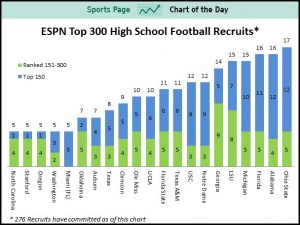I’ve had 3 opportunities in my career to step into traditional corporate recruiting departments and make changes that would ‘turn’ these departments around so that the organization would see them as a positive producing department, where previously that had not been viewed as this. As you can imagine there are numerous changes that can be made to do this. You could go out and hire more talented recruiters. You could redesign and launch a new employment brand. You can redesign your processes. You can launch a new career website. Add in recruiter specific training. Get hiring managers and leadership involved in ‘owning’ their talent in their individual departments. All great stuff. All things that I eventually did – all which take considerable time and resources!
When you are stepping into a new organization and taking over, those who hired you expect instant miracles. Why? Because that’s what you told them you could do when you interviewed. One problem. You told them this without truly knowing what you were going to find when you started opening up closet doors in the department and skeletons began falling out all over the place. You didn’t realize your staff of recruiters were really just HR admins in disguise. That your ATS was an advance spreadsheet, and nothing more. Your hiring managers believed the only way to get talent was to wait for you to deliver it to them on a silver platter, just so they could say “I don’t like that kind – bring me another platter!” You didn’t know your major vendor was the CEO’s cousin who had no clue and no sense of urgency – but was entitled all the same.
Doesn’t matter now – deliver the miracle!
There is really only one thing I know that works in recruiting. Doesn’t matter if you’re an agency or corporate. Doesn’t matter the industry. Doesn’t matter the recruiting experience level you have on your staff. It’s been the one miracle that in good times and bad has always sets recruiters apart – at all levels. Activity. Outgoing phone calls, number of candidates interviewed, number of resumes sent to hiring managers, etc. Higher activity level = higher recruiting department satisfaction and results, 100% of the time. It’s a simple miracle.
So – how do you do this tomorrow?
Step 1: Instantly track the number of ‘outgoing’ phone calls made per recruiter. If you don’t have technology to track this – develop a simple call sheet that tracks candidate name, phone number, position called for and result. Track calls for 2 weeks. (outgoing calls only – keep it simple, establish a habit – great recruiters call candidates)
Step 2: On week 3 – set daily outgoing call goal 25% higher than the two week daily average. (don’t let on you will do this on week 3 or you’ll have low numbers your first two weeks)
Step 3: Hold those recruiters accountable who aren’t reaching their call goal.
You’ll hear every single excuse in the world – you have to stay strong. “I have too many meetings” – tell them you are giving them permission to no longer attend those meetings. “I have to much paperwork” – stop doing paperwork – that’s for after 5pm and on weekends (recruiting isn’t a 40 hr per week job). Only concentrate on calls. Calls. Calls. Calls.
Miracle, delivered, almost instantly.
Want to hear some more? Call me – I’ve got more miracles. Sackett.tim@hru-tech.com; 517-908-3156 or @TimSackett – my company delivers staffing miracles every freaking day!

